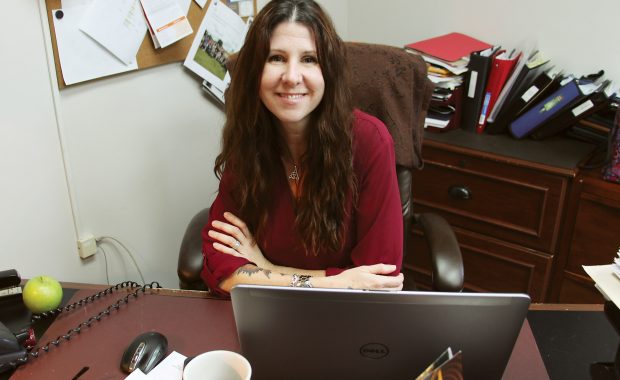BARRY’S BAY – The executive director of the Madawaska Valley Association for Community Living (MVACL) is putting out the call to anyone interested in partnering with or investing in unique housing models.
Eighteen years ago, Lacombe started working for the MVACL. She has been the executive director for the past five years.
MVACL is a non-profit organization providing support for adults with developmental difficulties within the area of Barry’s Bay, Eganville, Purdy and Madawaska. Serving this area for almost 50 years, MVACL has seven homes in Barry’s Bay and one in Killaloe. Three-quarters of the service provided by MVACL is housing, with different levels of care according to the needs of the individual, and can include 24-hour care. MVACL has about 100 employees, Lacombe said, providing support to about 70 families.
The MVACL budget is $3.9 million from the Ontario Ministry of Community and Social Services, membership fees, donations, grants and fundraising.
Since 2007, MVACL have been operating a group home in Killaloe for six residents. Lacombe said that due to various legislative changes, when there are two or more residents in a home that require assistance to evacuate in an emergency, it is considered vulnerable care occupancy. This puts the building under a different fire code and building regulations.
“All I know is every year prior to this, we have been fully compliant. It’s never been an issue and this year it was,” Lacombe said.
An architect has been consulted about potential renovations to bring the building up to the necessary B3 compliance code, Lacombe explained.
“There is just no way we could economically bring that house up to code,” Lacombe said. “We have no choice but to relocate.”
She sees the closure as an opportunity to review MVACL’s housing stock. The organization has three group homes, the one in Killaloe and two in Barry’s Bay.
“Our preference is for smaller living,” Lacombe said.
That is, more individualized housing.
MVACL began with parents caring for their children, and then creating meaningful things for individuals with intellectual disabilities to do.
“We had sheltered workshops,” Lacombe explained. “We grew our residences one at a time to be where we are today – so, very tradition-based services.”
MVACL expanded when the province closed the institutions.
“They needed places for folks to go, so now you have children who are growing up in their communities, not coming from institutions. They will grow in their own home,” Lacombe explained.
Other community living groups closed their group homes many years ago.
“The future of housing, I think, is going to be individualized,” she said. “We will be providing supports to people in their homes as required.”
The funding model has changed too, said Lacombe. The Ontario Ministry of Community and Social Services is putting the money in the hands of the families, who purchase the services they would like. But it is also a needs-based system.
Get your January 20, 2016 edition of The Valley Gazette to read the full story.
